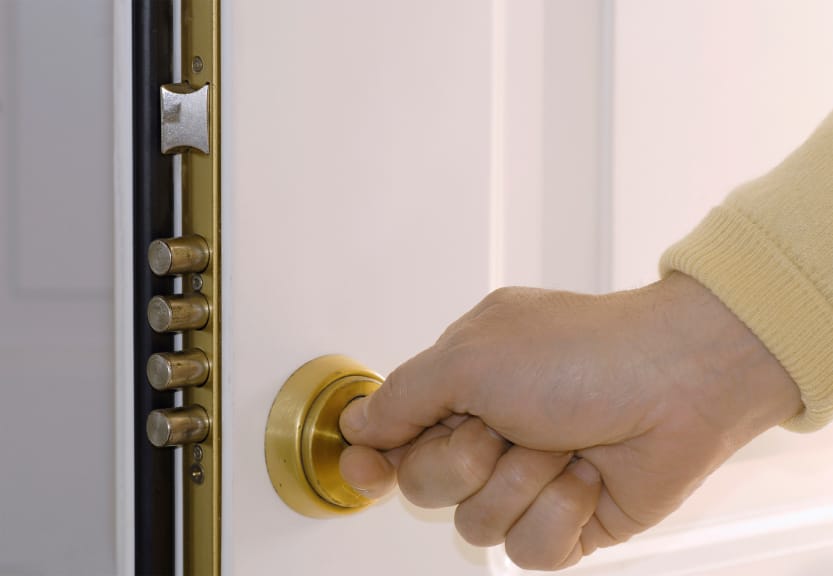With burglary accounting for a chunk of all property crime, make sure to protect yourself and your apartment building from becoming a target.

If you are like many people, you may not consider your personal apartment security to be very important. After all, you are only one apartment in a building full of units. So why would you need to worry about burglary? However, recent statistics reported by the Canada Mortgage and Housing Corporation show that burglary accounts for 22% of all property crime. So how do you prevent yourself from becoming just another statistic and increase the security for your apartment?
Doors
Before moving in, ask if the door to your apartment will be re-keyed.
Sometimes a previous tenant will still have a copy of the apartment key, and you do not want them to be able to access your home. You may need to make copies of your keys, but most apartment owners don’t allow key copies for anyone who doesn’t live in the apartment, including friends, partners and family.
If the lock on your door is not a deadbolt, ask for one to be installed. You’ll also want to have a peephole in the door so you can see who is outside, especially if someone knocks and you are not expecting company! Remember: it is your right as a tenant to feel secure and safe in your own home.
Balconies and Sliding Doors
Ah, sliding doors that open out onto a beautiful balcony – who wouldn’t want to leave the door open to get let in the fresh air?
Well, criminals are counting on you to leave those doors open.
Especially if your rental unit on a floor close to the ground If you are not going to be home, or it is night, close and lock your sliding doors.
Even if you are on a higher floor, a determined criminal really doesn’t mind as long as they have easy access to your home. Further to that, do not leave any valuable items on your balcony and keep a broom handle or any long stick in the track of sliding doors as a further security precaution.
Entranceway
Many rental apartment buildings will have a sign posted in the entranceway to remind you of this very crucial fact: If you do not know who the person is, do not let them in the building.
It may be tempting to be a Good Samaritan and let someone in if they give you a sob story, but you just cannot do so under any circumstances. This is so important that we will repeat it again – if you do not know who the person is, do not let them into the apartment building.
Get to Know Your Neighbours
The more you know your neighbours, the more inclined you will be to look out for each other. Introduce yourself to people in your building and ask if there is a crime watch group (and if there isn’t, why not start one?).
Let your neighbours across the hall from you know if you will be away for an extended period of time, and perhaps they can pick up your mail so it won’t look like the apartment is empty. Better yet, add a “No Junk Mail” sign, which will prevent a build-up of flyers while you’re gone.
IndependentTraveler.com offers these tips for travelling tenants:
1. Ask a Friend to Help
2. Don’t Tip Off Criminals on the Web
3. Hide Valuables or Store Off-Site
4. Leave Your Curtains as you Usually Keep Them 5. Purchase Light Timers 6. Stop Your Mail 8. Unplug Appliances 9. Remove Your Spare Key
Also, when it comes to your name, never use your full name anywhere (mailbox, entry board, etc.); only use initials.
Finally, many advise having an unlisted phone number for safety reasons. This tactic will also cut down on solicitation calls.
See Something? Say Something!
The golden rule – if something doesn’t feel right, let your landlord know. If you witness a crime or suspicious taking place, call the police immediately and don’t try to stop it yourself.
Your safety and the safety of your fellow residents is the most important thing!
Related: Is Renting a Furnished Apartment Worth It?
The RentSeeker.ca Team

